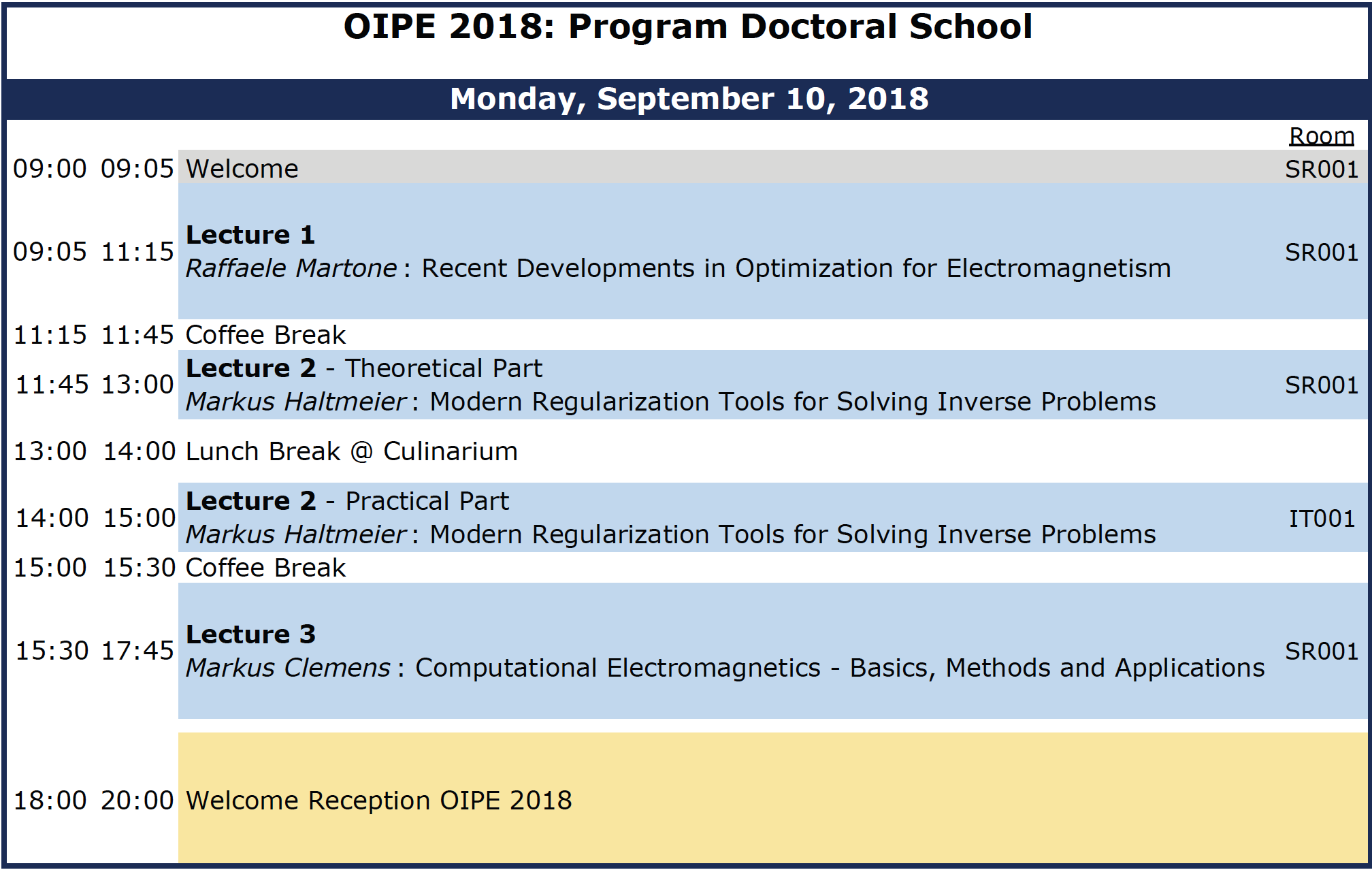Overview

Lecture 1: Recent Developments in Optimization for Electromagnetism
Lecturer: Raffaele Martone
Our every day choices are continuous, sophisticated, complex (and generally unaware) exercises of “optimization”. We look for the “best” for any, trivial or important, decision we have to take. Similar, from certain points of view, are the problems of "identification" that require the exploitation of some clues to "guess" a hidden or unknown object or subject. Also for this class of problems we are constantly solicited, on simple or complicated occasions, in our daily life. For these classes of problems, each of us is a very sophisticated and effective optimization tool.
Even technical and scientific activities call us continuously to make choices, possibly optimized: the design of a device, the choice of a component, the definition of a product price. Electromagnetism is an important, challenging field of application. To deal with problems in this class, the most effective tools can be found in mathematics, numerical analysis and computing science.
The lecture deals with the mathematical formulations of the minimization, on which both the optimization and identification techniques are based. The conversation includes
(i) the presentation of the mathematics suitable for this class of problems, the essential definitions and the main limits;
(ii) the discussion of the main families of procedures, deterministic and stochastic, for numerical research of the minimum, highlighting the natural processes to which they are often inspired;
(iii) the illustration of approaches for the treatment of multiple objectives;
(iv) the exemplification for some application in electromagnetism.
Lecture 2: Modern Regularization Tools for Solving Inverse Problems
Lecturer: Markus Haltmeier
Numerous applications in medicine, engineering or elsewhere require the stable solution of inverse problems that can be formulated as ill-posed equations. The exact solution of such equations may not exist, may not be unique or may be unstable. Discretizing an ill-posed problem yields to an ill-conditioned system of equations, where standard solution methods yield results far away from the true results. In order to obtain accurate solution schemes, one has to apply regularization tools which incorporate suitable prior information about the unknowns and the noise. In this doctoral course, we give an introduction to modern regularization methods for solving inverse problems. We thereby cover the following aspects:
(1) Introduction to inverse problems (examples, ill-posedness, discretization)
(2) Theory of convex variational regularization
(3) Sparse regularization and compressed sensing
(4) Iterative solution algorithms
In the last part of this course, the participants will numerically implement and compare several regularization tools for an example inverse problem.
Lecture 3: Computational Electromagnetics - Basics, Methods and Applications
Lecturer: Markus Clemens
This short course gives an overview on the underlying ideas of contemporary simulation methods used in Computational Electromagnetics, their possibilities and limitations. Starting point are discretization schemes for the Maxwell equations and their underlying geometric structure.
Discretization schemes that mimic this structure result in well established schemes as the Finite Integration Technique, the Cell method or the Whitney Finite element method. These mimetic schemes build the foundations of a discrete electromagnetic field theory that allows to derive discrete formulations for a wide range of static, slowly varying or fast varying electromagnetic field problems related to electrical engineering applications. This also includes variants of the Finite Difference Time Domain method of K. Yee, which is established to be one of the standard schemes for solving the full Maxwells equations for more than 50 years now. Alternative to these volume oriented simulation schemes, also higher order methods as e.g Discontinuous Galerkin Finite Element methods, integral equation methods or asymptotic methods and their specific fields of applications are addressed.